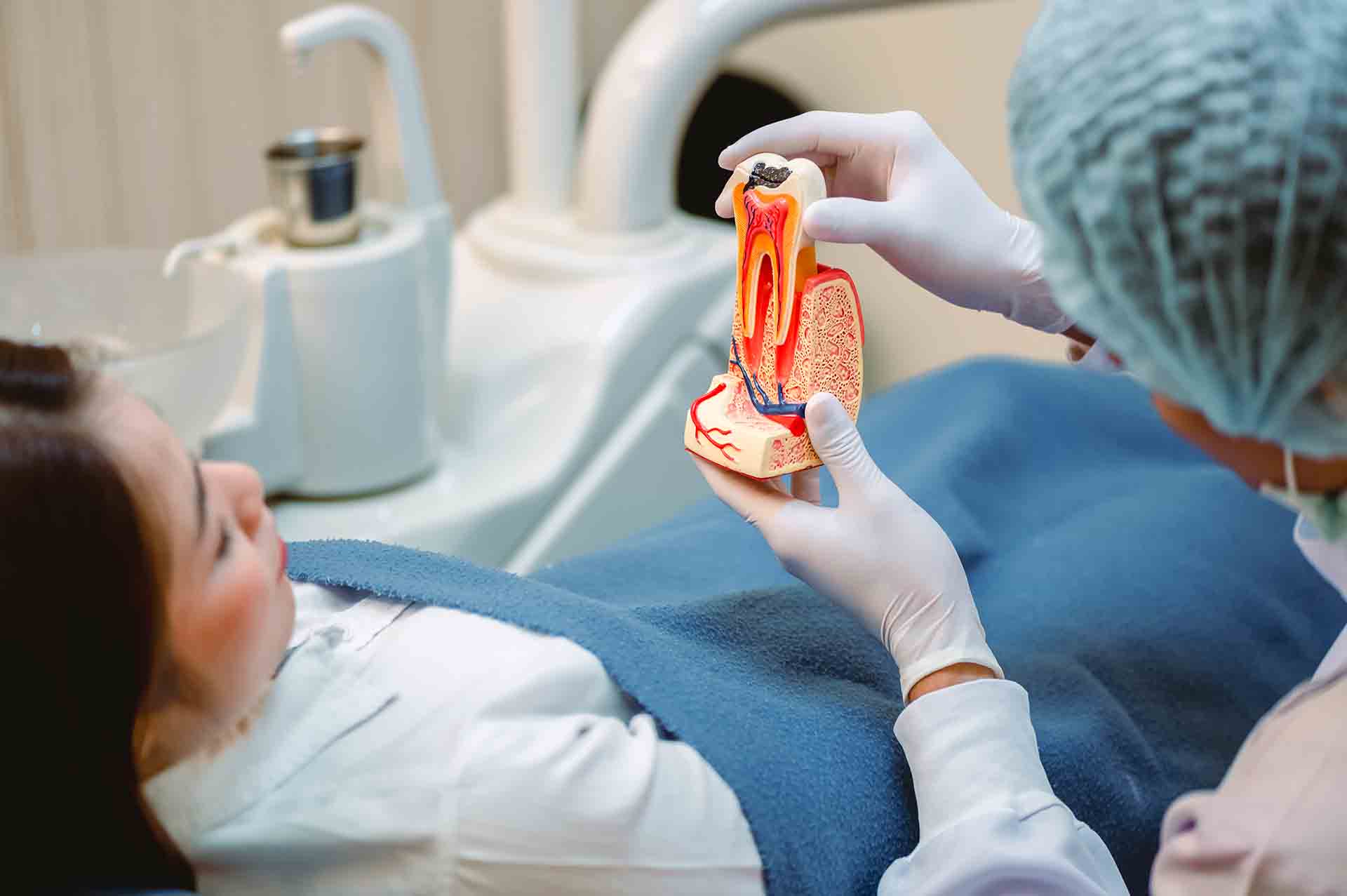
Does a Root Canal Hurt? Modern Endodontics Explained
September 2025
More than 15 million root canals are performed in the U.S. every year (Source), and many people still wonder: Does a Root Canal Hurt? Modern Endodontics shows that with modern anesthetics and techniques, today’s root canal treatment is far more comfortable than the old reputation suggests.
At Kokua Smiles in Hawaii, we believe that understanding the procedure can relieve fear and help patients feel confident about saving their natural teeth. Our team takes the time to explain each step of the process, ensuring you know exactly what to expect. With gentle care and modern technology, most patients experience little to no discomfort during their visit.
What Is a Root Canal? Endodontics Explained
A root canal is a dental procedure designed to save natural teeth. When the inner pulp of a tooth becomes infected or damaged due to decay, trauma, or repeated dental work an endodontist removes the diseased tissue, disinfects the canal, and seals it with a protective filling.
The goal is simple: relieving the pain, preventing further infection, and restoring the tooth so it functions normally. Without treatment, the infection can spread, leading to tooth loss or even disease elsewhere in the body.
Myth vs. Fact: Is Root Canal Painful?
For decades, people associated root canals with severe pain. That belief was based on long debunked and poorly designed research. The truth is, root canal treatment doesn’t cause pain, it relieves it.
- Myth: Root canals are the most painful dental procedure.
- Fact: With modern technology and anesthetics, patients feel little more than pressure, similar to a filling.
As the American Association of Endodontists confirms, today’s root canals are highly effective with comfortable procedures that help patients keep their natural teeth.
Root Canal Treatment Side Effects & Recovery Time
Like any dental procedure, there may be temporary side effects after a root canal, including:
- Sensitivity when chewing
- Mild swelling or tenderness
- Fatigue from keeping your mouth open during treatment
Most patients resume normal activities the same day. Full root canal recovery time is typically 2–3 days, though the treated tooth may feel slightly different until a permanent crown is placed.
How Long Does a Root Canal Take?
A single root canal treatment usually lasts 60 to 90 minutes. More complex cases, such as teeth with multiple roots, may require two visits to ensure each canal is thoroughly cleaned and sealed. During the procedure, your dentist or endodontist will keep you comfortable with local anesthetics and may use advanced tools like rotary instruments and digital imaging to make the process more efficient.
Compared to tooth extraction and replacement, a root canal is both quicker and better for your oral health long term, as it preserves your natural tooth and prevents the need for more invasive procedures.
Root Canal Cost: Investment in Your Smile
The cost of a root canal varies depending on the tooth location and complexity. While molars may be more expensive to treat than front teeth, the procedure is still more cost-effective than tooth extraction followed by dental implants or bridges. Think of it as an investment: preserving your natural teeth avoids future complications and expenses.
The Journey of Root Canal Explained
Before: You’ll likely be experiencing pain from an infected or damaged tooth. X-rays will confirm the need for treatment.
During: Your endodontist numbs the tooth, removes the diseased pulp, disinfects the root canals, and seals the tooth.
After: A temporary filling protects the tooth until your permanent crown is placed. The result? A restored tooth that looks, feels, and functions like the rest of your smile.
How to Avoid Root Canal Treatments?
While root canals are safe and effective, prevention is always better. You can lower your risk by practicing good oral hygiene:
- Brushing twice daily with fluoride toothpaste
- Flossing once a day
- Visiting your dentist for regular cleanings
- Wearing a mouthguard to protect against trauma
Remember, untreated cavities and cracks are the main culprits. Early intervention prevents infections before they reach the tooth pulp.
FAQs: Root Canal Pain Explained
Q: Will my tooth hurt after a root canal?
A: You may feel mild tenderness for 24–48 hours, but severe pain is uncommon. Over-the-counter medication usually helps.
Q: Which stage of a root canal is most painful?
A: The discomfort occurs before treatment when the tooth is infected. The actual procedure is designed to relieve that pain.
Q: Do modern root canals hurt during or after the procedure?
A: Thanks to local anesthetics and modern technology, most patients feel no pain during and only minor soreness after.
Q: What happens during a root canal?
A: Your dentist or endodontist removes the infected pulp, cleans the canals, and seals the tooth to protect it from further damage.
Modern Endodontics in Hawaii: Gentle Care at Kokua Smiles
If you’ve been putting off a root canal because of fear, now you know the truth: modern root canal procedures are safe, effective, and virtually painless. At Kokua Smiles, our expert team uses the latest techniques to ensure your comfort every step of the way.
Located conveniently in Hawaii, we specialize in endodontic care that restores and protects your natural teeth helping you smile with confidence again.
Ready to stop tooth pain and save your smile? Schedule your consultation with Kokua Smiles today and experience gentle, stress-free root canal treatment at any of our convenient Hawaii locations: Kaneohe, Pearlridge, Wai‘alae, or Honolulu.
Kaneohe Family Dental Care
Dental Care of Pearlridge
Wai’alae Dental Care
Honolulu Dental Care
Most Read



Can General Dentists Do Invisalign? Everything You Should Know Before Starting Treatment
December 2025









Just In



Can General Dentists Do Invisalign? Everything You Should Know Before Starting Treatment
December 2025










